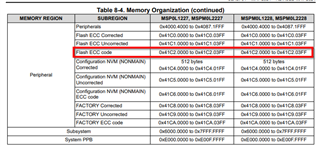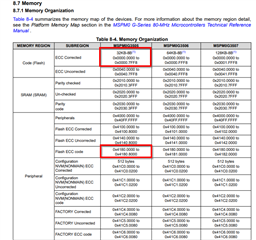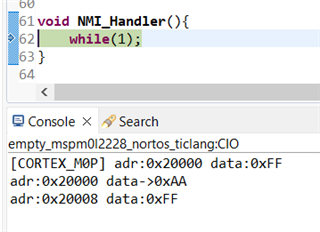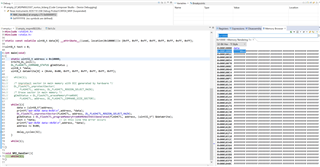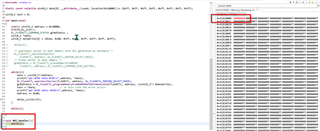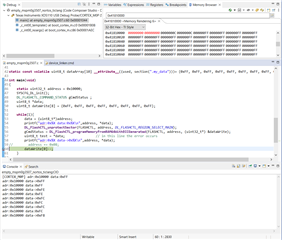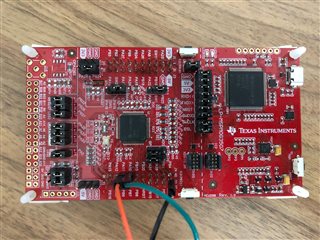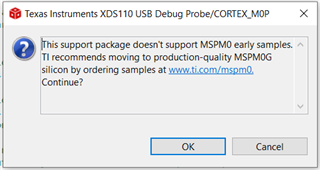Other Parts Discussed in Thread: SYSCONFIG, MSPM0G3507, MSPM0L2228, LP-MSPM0G3507
Tool/software:
Hi all,
with the LP following unexpected behavior happens.
When a write a value to flash memory and read it again, an unexpected interrupt occurs while reading. Whether the interrupt occurs also depends on the value. According to the xPSR register, it should be the exception 10

Exception 10 is unfortunately not described in detail in the reference manual and is signed as "RESERVED".
Please can you guide me on that? Thanks in advance
Jens


